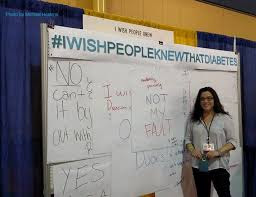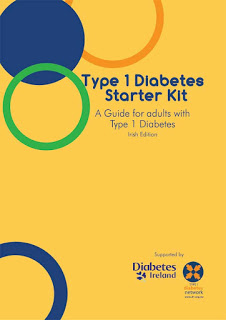Some of you may have come across the Hashtag #IWishPeopleKnewThatDiabetes..... over the last year, which is the brainchild of Diabetesaliciouness blogger, Kelly Kunik.
I met the superwoman herself last July at the MasterLab Diabetes Advocates conference. On that first morning, as I took a deep breath and joined a table of strangers. I know, I'm a very grown-up woman but I still have to force strongly encourage myself to do these things because I know I'll regret it if I don't.
Anyway, I did not recognise anyone but as soon as the ladies started conversing and using their first names, I started to connect the "who" to the "blog" and figured out that the girl sitting right beside me was Kelly.
Kelly has lived with type 1 since she was 8 years old (that's 38 years), and comes from a long line of direct relatives with type 1 diabetes, including her sister who died in 1991 from complications at the age of 33. Kelly gave an indept interview in August to Diabetes Mine in which you can read lots more about her and why she does what she does.
The #IWishPeopleKnewThatDiabetes hashtag and the #IWishPeopleKnewThatDiabetes Day, (22nd April 2015), were inspired by 3rd grade teacher, Kyle Schwartz and her #Iwishmyteacherknewthat hashtag, which was heartbreaking.

|
| Photo cortesy of DiabetesMine.com |
Kelly says that "This day is about people living with diabetes taking to twitter and using the hashtag in unison for a 24 hours period to express the good, the bad and the diabetesalicious of it all."
The #hashtag and day took on a life of their own with over 16 countries participating and generating over 17 million twitter impressions to date.
The IWishPeopleKnewThatDiabetes hashtag has now become an initiative, a movement and a call to action where people can express themselves past the 140 character limit and in various multimedia formats. Kelly launched the "Iwishpeopleknewthatdiabetes.org" website last November. She (and I) encourages everybody to visit the website and submit your own "what you wished people knew about diabetes". You can also read some guest posts from rock stars in the Diabetes Community and some totally-not-a-rock-star-or-even-close people's guest posts (i.e. yours truly. I was so honoured that she asked!!!)
IWishPeopleKnewThatDiabetes.org is well worth a visit.







